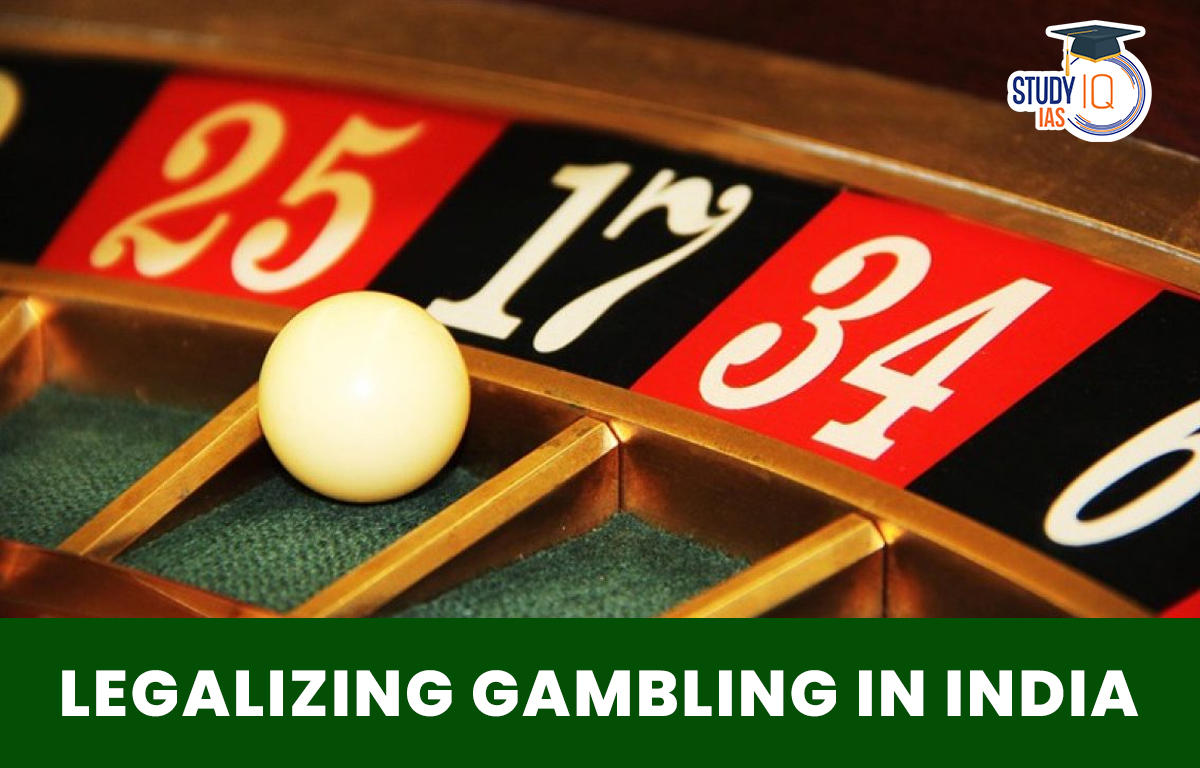Table of Contents
Context: The Tamil Nadu Governor has given assent to the Tamil Nadu Prohibition of Online Gambling and Regulation of Online Games Bill, 2022.
Decoding the Bill
- Prohibition on online gambling: The bill defines online gambling as wagering or betting and includes playing such games of chance for money or other stakes. Stakes include virtual credits, tokens, objects, or anything similar purchased in a game.
- Prohibiting certain kinds of games: The bill prohibits online games of chance specified in the bill, which are played with money or other stakes. Game of chance should satisfy following conditions:
- The element of chance dominates over the element of skill.
- Games are presented as games of chance.
- The element of chance can only be eliminated by superlative skill.
- Games involve cards, dice, or wheel which works on random event generators.
- Establishing authority: The bill establishes Tamil Nadu gaming authority whose mandate would be to identify online games of chance and recommending the state government to include them in the Schedule of prohibited games.
- The authority will also issue certificates for operation, set time and money limit for online games and also collect information of game providers.
- Role of game service providers: Gaming entities located outside Tamil Nadu have to restrict access to prohibited games to users located in the state or exercise due diligence.
- It will be the responsibility of the gaming providers to verify that individuals based in the states do not have access to prohibited games.
- Fines and penalties: Individuals playing prohibited games will be imprisoned for up to three months, or be fined up to Rs 5,000, or both. Gaming entities providing prohibited games shall be imprisoned for up to three years or be fined up to Rs 10 lakh, or both.
What is Online Betting or Gambling?
- Gambling/betting is the wagering of something of value on a random event with the intent of winning a prize, where instances of strategy are discounted. The act of gambling online using the internet is termed online gambling.
- Some of the most common online gambling activities include poker, casinos, lotteries, horse racing, mobile gaming and sports betting.
- Betting and gambling industry in India: There is an estimation that Indian gambling industry could be worth $60 billion. However, majority of them run illegally.
- Current Regulations in India:
- Public Gaming Act of 1867: This act bans all forms of gambling in India. However, this act does not have reference to online gambling.
- Prize Competition Act: This act restricts all prize competitions that exceed a prize pool of one thousand rupees per month.
- The Information Technology Act of 2000 has no mention of any online gaming activities.
- Authority: The Union government is responsible for laws related to the internet while gambling laws come under the state list under the seventh schedule.
- Physical gambling: Indian government has strict laws against land-based casinos. The parliament can make laws on this subject only if all states consent to make a law.
- Some states such as Goa, Sikkim and Daman and Diu allow some form of gambling in form of casinos as gambling comes under state list.
- Online gambling regulation: Some states such as Odisha, Andhra Pradesh and Telangana have banned such games, citing mental health and addiction concerns.
- In other states such as Kerala and Karnataka, courts have overturned state bans on online gambling.
- Online casinos/ gambling companies can operate in India (except for Telangana, Andhra Pradesh and Odisha) if they are controlled by offshore entities.
State Regulations on Gambling
- States like Delhi, Madhya Pradesh, and Uttar Pradesh have adopted the Public Gambling Act with some amendments to regulate online gaming.
- Sikkim: It state regulates digital casinos offering games like blackjack under the Sikkim Online Gaming (Regulation) Act, 2008. Operators need a license under the act and only allowed to offer the games at intranet terminals. The state also allows sports betting through intranet terminals as well.
- Meghalaya: the state allows land-based and digital casinos under the Meghalaya Regulation of Gaming Act, 2021. Sports betting in the form of horse betting is allowed, once licensed.
- Nagaland: Poker is recognised as a “game of skill” under the Nagaland Prohibition of Gambling and Promotion of Regulation of Online Games of Skill Act, 2016.
- However, no state in India has separate specific law to regulate “games of skill” apart from Nagaland and Meghalaya.
Legalizing Betting Industry in India: Pros and Cons
| Pros | Cons |
|
Regulated industry would motivate more youths to participate, resulting in addiction.
It will lead to greater increase in crimes, especially homicides. The number of suicides are also likely to witness rise. Due to legalized betting, integrity and honesty will be under great threat. Match-fixing and spot-fixing would drastically increase in sports. Middle class families may lose their family savings as earning may get spent on betting. |

Important Judgments on Online Gambling
- Supreme Court: “Games of skill” are legal commercial activities protected by Article 19(1)(g) of the Indian Constitution, according to Supreme Court and High Court judgments.
- Madras High Court: The Tamil Nadu government had banned all types of internet gaming and said “skill games played for money or other stakes” are illegal in the state.
- In August 2021, the Madras High Court struck down the law as unconstitutional. It distinguished skill-based game with gambling.
- Karnataka High Court: The Karnataka High Court struck down the contentious provisions of the Karnataka Police Act that deal with online gambling. The state government has approached the Supreme Court.





















 WhatsApp
WhatsApp